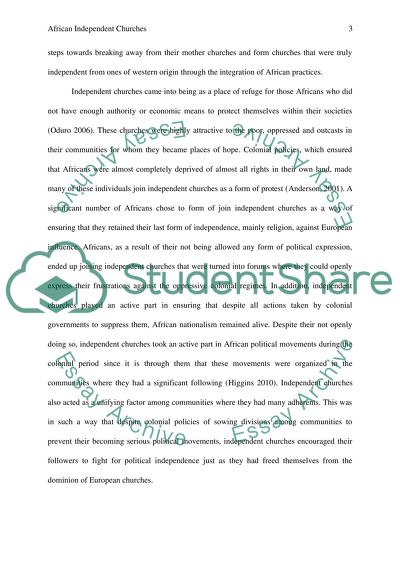Cite this document
(“Religion in Africa Essay Example | Topics and Well Written Essays - 2500 words”, n.d.)
Religion in Africa Essay Example | Topics and Well Written Essays - 2500 words. Retrieved from https://studentshare.org/religion-and-theology/1671675-religion-in-africa
Religion in Africa Essay Example | Topics and Well Written Essays - 2500 words. Retrieved from https://studentshare.org/religion-and-theology/1671675-religion-in-africa
(Religion in Africa Essay Example | Topics and Well Written Essays - 2500 Words)
Religion in Africa Essay Example | Topics and Well Written Essays - 2500 Words. https://studentshare.org/religion-and-theology/1671675-religion-in-africa.
Religion in Africa Essay Example | Topics and Well Written Essays - 2500 Words. https://studentshare.org/religion-and-theology/1671675-religion-in-africa.
“Religion in Africa Essay Example | Topics and Well Written Essays - 2500 Words”, n.d. https://studentshare.org/religion-and-theology/1671675-religion-in-africa.


